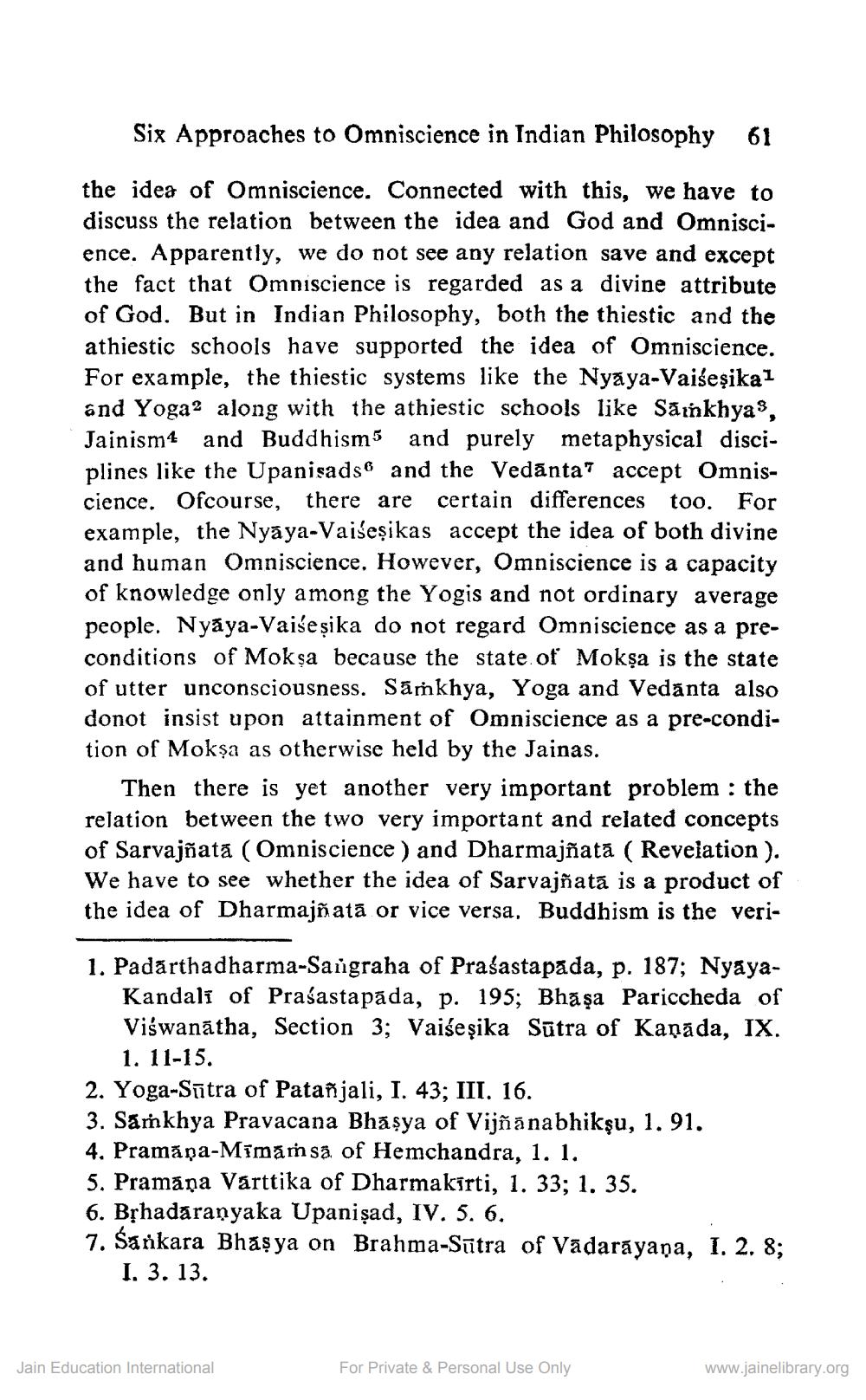________________
Six Approaches to Omniscience in Indian Philosophy 61
the idea of Omniscience. Connected with this, we have to discuss the relation between the idea and God and Omniscience. Apparently, we do not see any relation save and except the fact that Omniscience is regarded as a divine attribute of God. But in Indian Philosophy, both the thiestic and the athiestic schools have supported the idea of Omniscience. For example, the thiestic systems like the Nyaya-Vaišeşika? and Yoga2 along with the athiestic schools like Sankhyas, Jainism4 and Buddhism and purely metaphysical disciplines like the Upanisadse and the Vedānta? accept Omniscience. Ofcourse, there are certain differences too. For example, the Nyaya-Vaišeşikas accept the idea of both divine and human Omniscience. However, Omniscience is a capacity of knowledge only among the Yogis and not ordinary average people. Nyaya-Vaiseșika do not regard Omniscience as a preconditions of Moksa because the state of Moksa is the state of utter unconsciousness. Sáňkhya, Yoga and Vedanta also donot insist upon attainment of Omniscience as a pre-condition of Mokșa as otherwise held by the Jainas.
Then there is yet another very important problem : the relation between the two very important and related concepts of Sarvajñata (Omniscience ) and Dharmajñatā (Revelation). We have to see whether the idea of Sarvajñata is a product of the idea of Dharmajñatā or vice versa. Buddhism is the veri
1. Padarthadharma-Saŭgraha of Prasastapada, p. 187; Nyaya
Kandali of Prasastapāda, p. 195; Bhaşa Pariccheda of Viswanātha, Section 3; Vaiseșika Sūtra of Kanada, IX.
1. 11-15. 2. Yoga-Sūtra of Patañjali, I. 43; III. 16. 3. Sarkhya Pravacana Bhāşya of Vijñānabhikṣu, 1. 91. 4. Pramāņa-Mimāṁsā. of Hemchandra, 1. 1. 5. Pramāna Varttika of Dharmakirti, 1. 33; 1. 35. 6. Bșhadaranyaka Upanişad, IV. 5. 6. 7. Sankara Bhaşya on Brahma-Sūtra of Vadarāyaṇa, I. 2. 8;
1. 3. 13.
Jain Education International
For Private & Personal Use Only
www.jainelibrary.org




